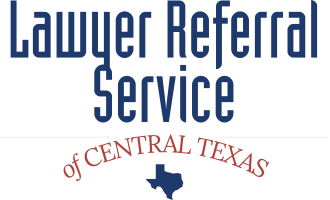A tax audit is a check done by a state tax authority or the Internal Revenue Service (IRS). It is often done randomly and only when the tax authority suspects the presence of a problem with a taxpayer’s return. It can be scary and nerve-racking for an individual or company to have the thought of having their return audited by the IRS.
The good news is that the probability of your taxes getting audited is quite minimal and you also have the ability to further reducing this chance of tax audit subjection if you employ the expert tax lawyer with Austin LRS.
Below we look at the ways for you to avoid tax audits:
Don’t Be Dishonest
Be honest with your tax returns as gaps will attract the auditor’s attention, mainly if you are self-employed. You should be able to account for any business claims like miles driven, meals, supplies, and entertainment costs with receipts or other relevant documentation. An example is a home office deduction—in this case, you should not only possess the home office but one that is in conformation to the rules, i.e., used solely for the business.
Don’t be Messy, Illegible, or Make Mistakes
It is significant that you write clearly and neatly for your tax return to be sensible to the IRS. Failure will result in difficulty in reading your returns which in turn draws attention and become a subject of a tax audit. Your tax returns should be neat and free of errors. You may want to solicit the services of a certified public accountant to double-check your return math and ensure the numbers entered are correct. You can alternatively use a tax-preparation program and do an electronic filing, as it may be more accurate over hand-prepared returns.
Don’t Omit Any Information
Failing to report an income or an omission of any other kind of information is a red flag for the IRS. No matter how little your dividend payout is, and you feel it is too nominal in mentioning, any tax attorney will advise to include it since it is not only the right thing to do but also because the tax authority may already know of it and would wonder why you omitted such information. All the vendors you pay, be it interest, dividend income, or salary, file returns of these payments to the IRS. You are in turn expected by the tax authority to include such amounts in totality.
Don’t Make Your Filing Look Suspicious
Tax returns that look suspicious will often result in a possible audit by the IRS. It is aware, for example, the range of charitable contributions expected from various income levels of taxpayers. If your report depicts a more significant figure about your contributions, the IRS might require looking closely. Also, if your home-office expense is out-sized, you might be questioned.
Very round numbers are another kind of suspicion. For every gain on inventory, the IRS might want verification from the trade confirmation. Although some round numbers occur naturally, they may draw attention.
Don’t Fail to File a Return
Tax law demands you to file a return even if you owe no taxes or had no income in the tax year. The IRS may find and question you if you do not submit your tax return for whatever reason. File a return demonstrating and explaining the reasons for the zero taxes. You may request an extension if you need more time to collect paperwork needed for your tax filing, but this request may be denied.
Should you find yourself facing a tax audit despite doing your best, do not start panicking. Find an Austin, Texas tax lawyer at the Lawyer Referral Service of Central Texas (LRS) to help put your returns in order. Tax audits can be dreadful, but it should be less of a worry when you have a reputable tax attorney by your side.




